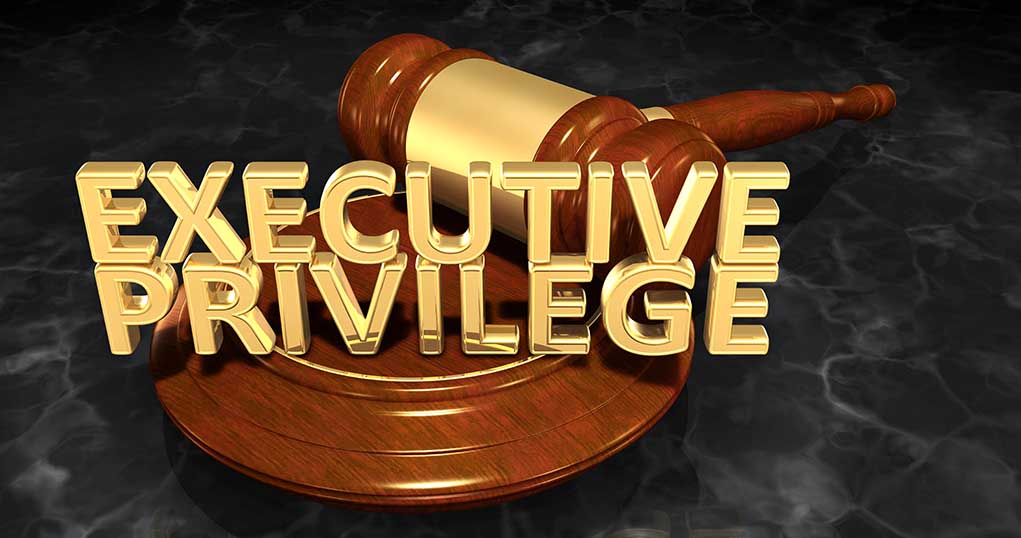
The United States Executive Branch has claimed privilege since the origins of the presidency itself, starting with George Washington’s reluctance to turn over documents related to a failed military endeavor. However, the need to establish the rights and limits of executive privilege remains ever-present. Even today, it can be challenging to pin down and precisely define what the term means under the law.
What Is Executive Privilege?
The US Constitution lacks any specific language to define executive privilege. Despite that, most proponents argue it’s necessary to ensure the separation of government powers. Most cite Article II, Section 2, Clause 3 as evidence of this position; it discusses the president’s responsibilities and working relationships with other officials.
The government acknowledges presidents and their trusted circles must sometimes make difficult choices in the country’s best interests. Executive privilege exists to protect the commander-in-chief from damaging probes that could threaten national security or the sanctity of the presidency.
Standing leaders may reject orders for documentation under a few different conditions to shield the president and the officials who answer to them:
- A subpoena was issued in bad faith or is unnecessarily broad.
- The timing of an investigation interferes with the president’s ability to carry out regular duties.
- Compliance with the subpoena would impede the president’s ability to complete an official task.
Previous Notable Cases
Several past presidents have attempted to use executive privilege to protect themselves after committing civil or criminal acts. Bill Clinton is a noteworthy example. He tried to use his rights to dodge sexual harassment charges from Paula Jones, who worked under the former president during his governorship in Arkansas.
During Clinton’s trial, the courts referred to “United States v. Nixon” as their precedent. That case occurred in 1974 after then-President Nixon attempted to evoke executive privilege to prevent the courts from accessing incriminating audiotapes. Because the recordings did not feature diplomatic or military secrets, the Supreme Court rejected Nixon’s claim.
History in the Making
Donald Trump also attempted to invoke executive privilege shortly after the January 6 Capitol Riots. He argued the investigations sought to connect him to the incident by infringing on his rights as president. Trump asserted he and his associates shouldn’t have to answer to any subpoenas, suggesting they were issued in bad faith and were part of a Left-wing witch hunt.
If the documents involved are sensitive or stand to impact national security, the courts must respect his claim. Many experts believe the former president will take his case all the way to the Supreme Court, which could ultimately yield a historic ruling.
Executive privilege may be poorly defined, but it’s an essential concept to a secure government. Our officials need to know they’re safe and protected when situations arise that force them to make tough decisions. While examples of abuse exist throughout history, these cases largely serve to clarify the boundaries, making it easier for the courts to rely on precedent when responding to future claims.




